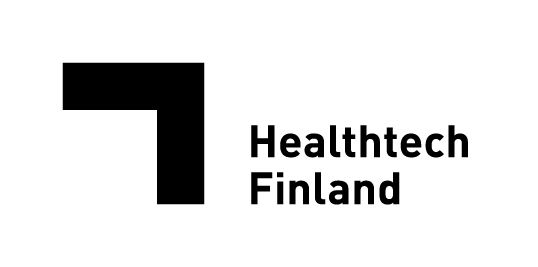
From a publishing company to a technology company with start-up spirit
Founded 45 years ago, the Pharmaceutical Information Centre has developed rapidly, growing from a publishing company into a technology company with start-up spirit: The Pharmaceutical Information Centre’s Pharmaca Fennica® drug database has been integrated with digital pharmacy and patient data systems, and the Pharmaca Fennica mobile application makes medical information easy to access when and wherever needed. Hoitotyön Pharmaca Fennica, an online service developed for nurses, provides support in practical nursing work. The Pharmaceutical Information Centre also produces digital services in business intelligence and expertise.
The CEO of the Pharmaceutical Information Centre Minna Palhamo says that the company has undergone a huge change, which was enabled by a clear vision, extensive cooperation, and systematic implementation. Special thanks go to the smooth cooperation with operators in the healthcare and medical sectors, and to the skilled and hard-working employees of the Pharmaceutical Information Centre.
“Our employees include professionals in the pharmacy, data analytics, and technology sectors. Our network covers the entire sector from research companies to authorities, healthcare professionals, and the medical and technology industry. We are constantly developing services in multidisciplinary cooperation with all operators in the field.”
The Pharmaceutical Information Centre uses technology to harness medical innovations to make the everyday work of medical and healthcare sector professionals easier, to free up more time for patients, and to support the implementation of patient safety.
“We have included in our drug database, for example, the pharmacogenomic information of medicines, which can be integrated with patient data systems, enabling easier planning of individual medical treatment. The technological solutions we have developed are scalable and can be easily customised also for international needs. Close cooperation with Healthtech Finland offers us many new cooperation opportunities both in Finland and abroad.”
Health technology generates growth and wellbeing
Health technology offers completely new kinds of opportunities for enhancing the health and wellbeing of the population. At the same time, it offers excellent opportunities for developing business operations and boosting exports. Strong growth figures reflect the potential of the field.
Health technology continues to be one of the most rapidly growing high-tech export sectors in Finland. Over the past 20 years or more, the export of health technology has created a surplus of almost EUR 13 billion and plenty of jobs in Finland. The strong growth is partly due to Finland’s unique position at the pinnacle of health technology: we have superior expertise in both healthcare and technology.
“The Finnish health technology industry is based on solid research activities. The first health technology innovations were built on medical research and medical technology, and these products are still being exported abroad today. Nokia’s success brought a large number of skilled workers to Finland. We are used to developing digital products alongside physical products and have an excellent understanding of the opportunities provided by data and artificial intelligence,” says the CEO of Healthtech Finland Saara Hassinen.
The aim is strong exports and international investments
Finland’s rapidly ageing population means that Finland needs to develop better and more effective services that make it possible to ensure the wellbeing of people cost-effectively. Digital services, the Internet of Things (IoT), artificial intelligence, and robotics offer a growing number of opportunities for taking care of health. Technological solutions can also be used to replace many routine tasks in the healthcare sector, thus reducing the workload of doctors and nurses.
“The population structure is ageing rapidly in Finland and Japan. We must be able to care for an increasingly large number of people with fewer people. Technology opens up plenty of new opportunities for this.”
Digital services are often easily scalable across national borders. Hassinen says that international demand for the technological solutions developed in Finland will increase because other countries are also facing similar problems caused by the ageing of their populations.
“As a nation, we need a strong export sector and international investments. At the moment, exports in the health technology sector are, to a large extent, in the hands of major companies. The importance of small companies only increases after they have acquired references in their domestic market.”
Hassinen points out that the adoption of a new technology means, above all, a change in the culture and processes. She encourages technocrats and healthcare service organisations to engage in close interaction. Interaction increases mutual understanding and eases the uncertainty relating to the change.
“This change in the culture and processes is huge and requires time. It does not happen on its own or at once. First, there must be a vision, towards which the organisation is led systematically.”
